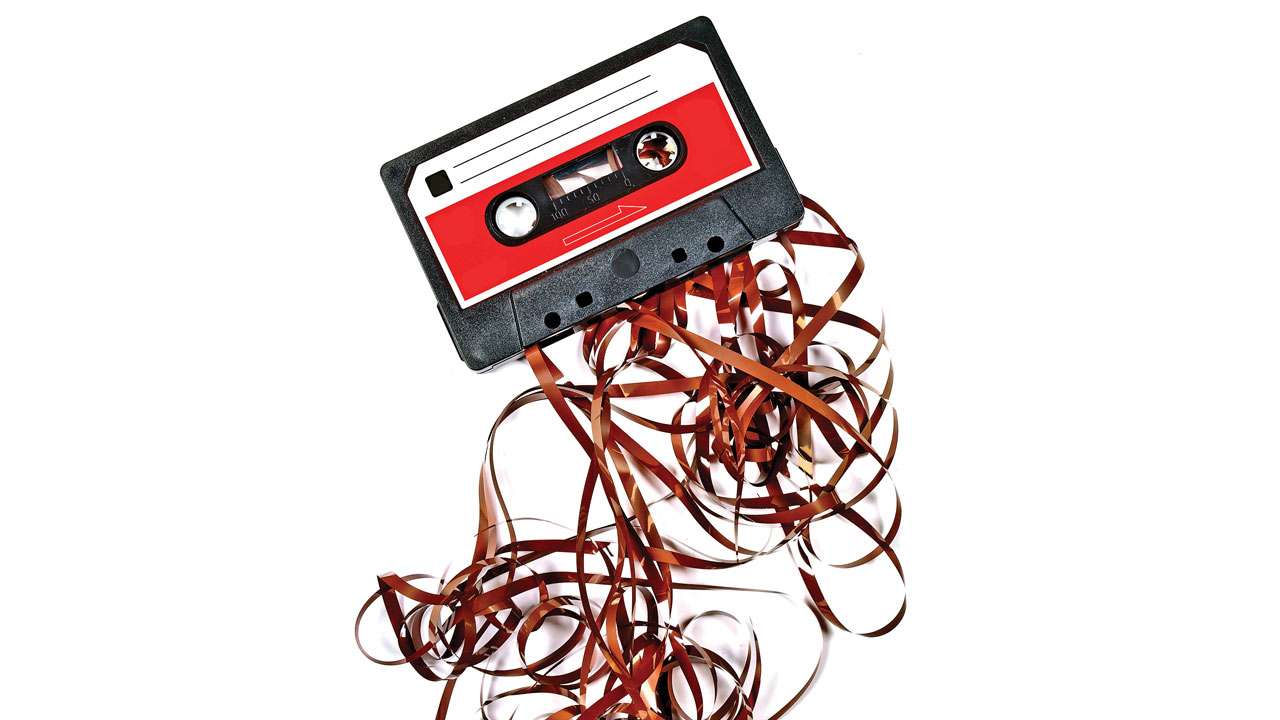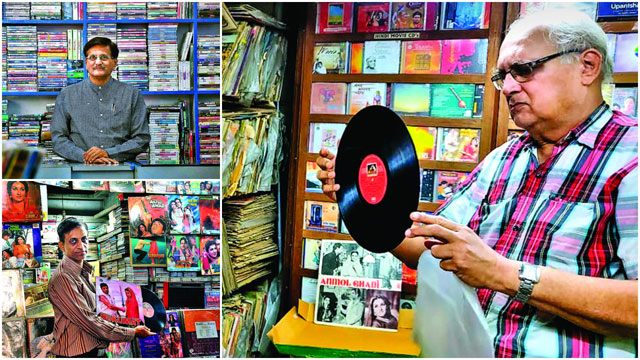
Mumbai once had supernumerary stores selling different music records at street corners. As common as today’s mobile recharge shops, they panned out across Maximum City. Other than the erstwhile Rhythm House or Hiro Music, there were several smaller shops. Yet it’s the memories and experiences of these stores – where patrons would spend hours listening to records – that 76-year-old music aficionado, Sunil Sampat, compares to “ladies trying out saris”. "The stores were very patient. Rhythm House had private listening booths where you sat on a comfortable sofa while the salesman played your music," he recalls.
But as the digital revolution saw records give way to audio cassettes; music retail grew to a mass consumption phenomenon. We saw the entry of CDs, MP3s, pen drives and finally online streaming platforms like Amazon Music, Gaana and Spotify, with their numerous ads. And what of the music shops? These now hidden gems might not have similar service offerings today as they did in yesteryears, but they breathe music and greet customers with a sea of knowledge behind piles of unsold cassettes, CDs and records.
A Hindi song plays on a three-in-one radio, CD and cassette player inside the 90-year-old Maharashtra Gramophone store, situated on the ground floor of Dadar’s Nakshatra mall. A welcoming face greets you from behind the counter in a crisp buttoned up shirt with two pens attached to his breast pocket. “We used to sell gramophones in the early days, hence the name,” says 67-year-old Shirish Waghmode, known to all as Shyam.
From a footpath watch repairing business to a gala shop in the ’50s, they became Phillips and HMV dealers. The five cabinets behind him are packed to the brim with English, Hindi and Marathi DVDs, but the retailer insists this is only a third of their earlier stock. The "salad days" of his business, he recalls, were when cassettes came in and piracy wasn’t a phenomenon yet. “We sold ₹40,000 worth of cassettes per day.”
Echoing his sentiments, Hemant Raichura of Music & Melody, located in a Gamdevi bylane, says, “After 50 years, never would I have imagined going out of business.” The musty, 8-by-6 ft shop is stacked to the ceiling with old inventory. The septuagenarian recalls days when people lined up round the block to buy new LPs. "Only if the movie was a hit they (manufacturers) would invest in making LPs or else there would be only 78 RPM (rotations per minute) or 45 RPMs. But there were also times when good music would bail out a flop movie through its sales," he says. Being privy to a copy or two of these records, he's preserved them over the years, albeit not in pristine condition. "I was sure that there would be a demand one day because the quality of music deteriorated after a point," Raichura says.
Later, he began shipping records and cassettes. “With no national courier services, manufacturers would send goods through banks. They’d arrive after three-four days and I’d sell through Angadias (local couriers) to Surat, Ahmedabad, Baroda and Nasik,” he says.
But today, even as cassette sales rekindle worldwide (with 74 per cent increase in US sales in 2016: Billboard), they’ve vanished from India.

[(Clockwise from top) Owner of Maharashtra Gramophone, Shyam Waghmode poses in a crisp buttoned-up shirt; Hemant Raichura of Music & Melody, which has two-inch wide shelves that manage to hold dozens of cassettes; Abdul Razzak, CST’s LP man, poses with a Hukumat record (Pic: Hemant Padalkar, Salman Ansari/DNA )]
Music retail was once a social experience, with collectors visiting each other to listen to unique collections. “Once ‘copying’ of music started, first via audio cassettes and then by CD burning, the social factor vanished,” Sampat laments.
Today, Jude D’souza, Founder of The Revolver Club, which sells audio systems and LPs estimates “just 100 cassette sales a month, nationwide”.
Though it's outside the bustling metro cities, where CDs are still in demand. “People still come to buy selected CDs from outside Maharashtra,” says Raichura, who gets clients from Rajasthan, Maharashtra, Kolkata and Delhi. Charting a significant drop in business from the glory days of Maharashtra Gramophone, Waghmode says, “Our per-day CD and DVD sales [largely from rural areas] are around ₹16,000-17,000.” The store also sustains on the sales of 75 Carvaan radios a month.
“The sound quality earlier,” Sampat explains, was much better, “unlike listening to tiny Bluetooth speaker devices today.” Whether it is the audiophiles returning to their former glory or simply a trend trickling in from the West, Sampat says, “Vinyl is back with a bang.”
At the famous footpath store near CST, iconic record dealer Abdul Razzak manages to sustain with his multitudinous collection of vinyls that beguile his national and international clientele. “NRIs bhi aate hain. India se bhi – Delhi, Madras, Kolkata, Bengaluru, Nagpur, UP...” asserts Razzak, who has been retailing music records for nearly four decades. His collection includes, Indian classical, Western pop, rock, jazz and hard rock as well, which he sources from collectors in and outside Mumbai. The oldest record he has would be K L Saigal’s ’40s hits.
“I get a few DJs and NRIs coming in to buy LPs. Yesterday, I sold a set of Kishore Kumar’s Live in Los Angeles records to a client in the US,” says the 57-year-old, who makes at least ₹250 on a single sale.
Then there’s The Revolver Club, situated on LJ Road in Mahim, whose air conditioned showroom with records placed on pedestals sell LPs for ₹1,000-2,000. While sale of turntables garner upwards of ₹15,000 on each sale. The founder of this three-year-old establishment claims to sell 800-1,000 LPs per month. “Vinyls became a commodity that people lost respect for. You find these at bhangarwalas, covered in dust. My store has restored the respect for these records. There has to be a business aspect to selling vinyl,” says D’souza, who also has Spotify.
But will the people return to the smaller stores? Will the experience of buying music return to what it used to be? Waghmode says it best: “When television became popular in India people said that cricket stadiums would then only be used for weddings. They asked – who would go there now? But stadiums still survived,” he laughs, hoping the wheel of fortune turns sometime soon.